
Stressed Momma Squirrels and Their Pups (Gallery)
These images were contributed to Live Science's Expert Voices: Op-Ed & Insights in partnership with the National Science Foundation.
During times of increased population, this dainty animal responds by breeding earlier, with the result being smaller pups that grow faster. Researchers from the University of Michigan and their colleagues at the Kluane Red Squirrel Project to examine the long-term effects of stress on wild populations. Read more about the research in "Squirrel Moms' Stress Aids Pup Survival " and see images from some of the studies below.
On to safety
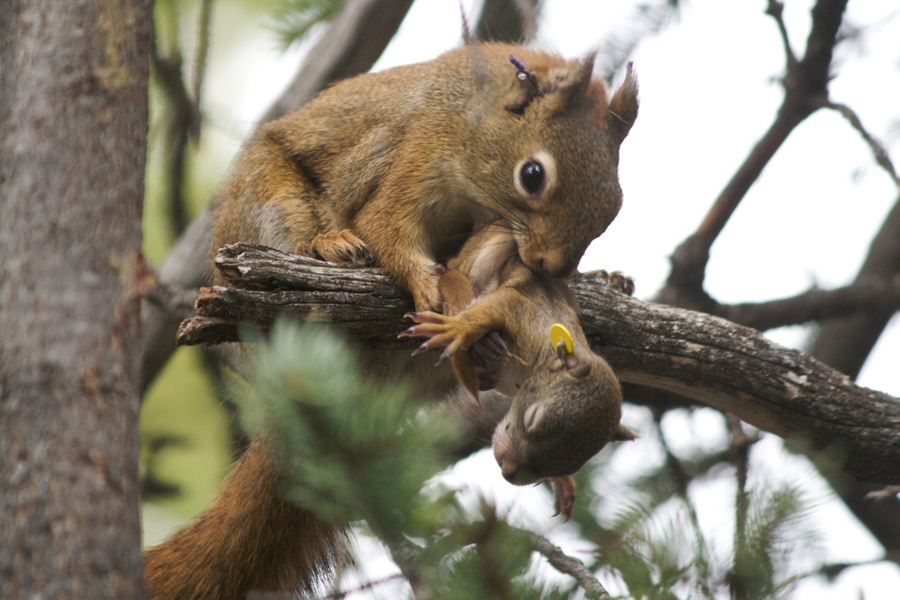
A red squirrel moves her pup from one nest to another. (Credit: Ryan Taylor.)
Giving a warning
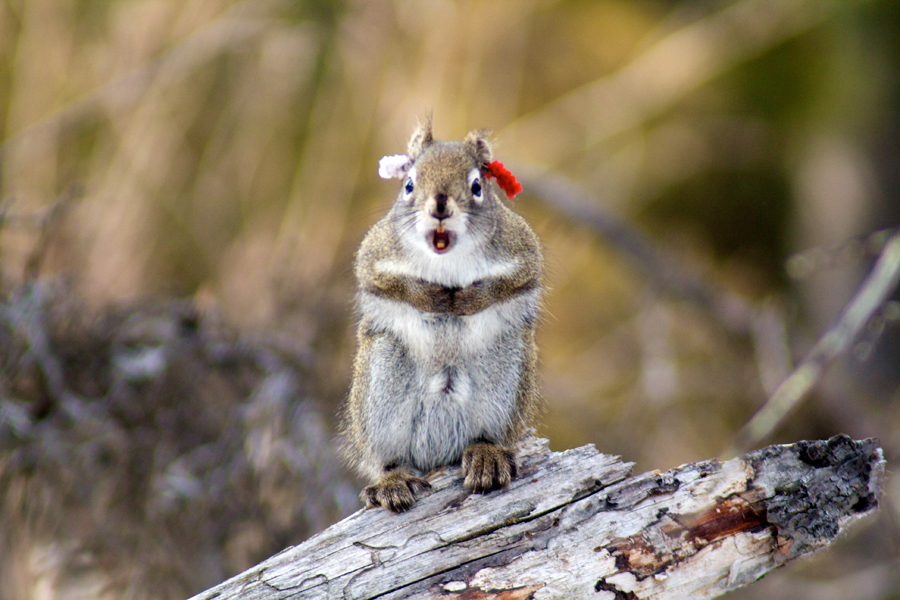
A red squirrel emits a territorial call. Pipe cleaners attached to ear tags ease identification. (Credit: Ryan Taylor.)
Tiny tots
Sign up for the Live Science daily newsletter now
Get the world’s most fascinating discoveries delivered straight to your inbox.
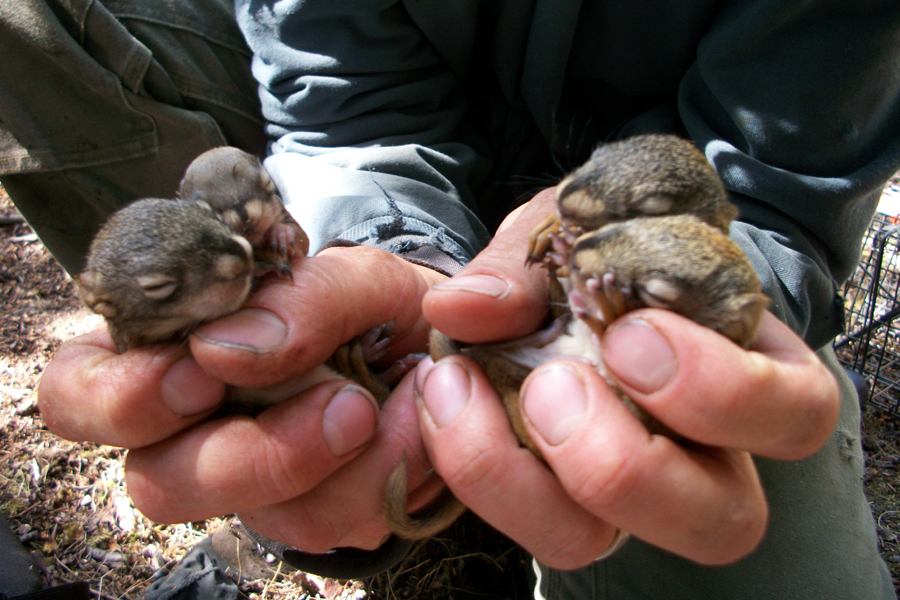
These pups are 25 days old. (Credit: Ben Dantzer.)
Checking in
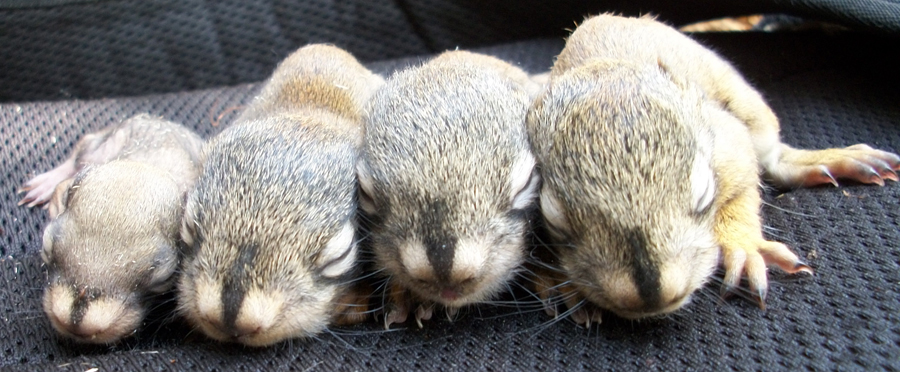
Pups are ready for a weight check. (Credit: Ben Dantzer.)
Getting a snack
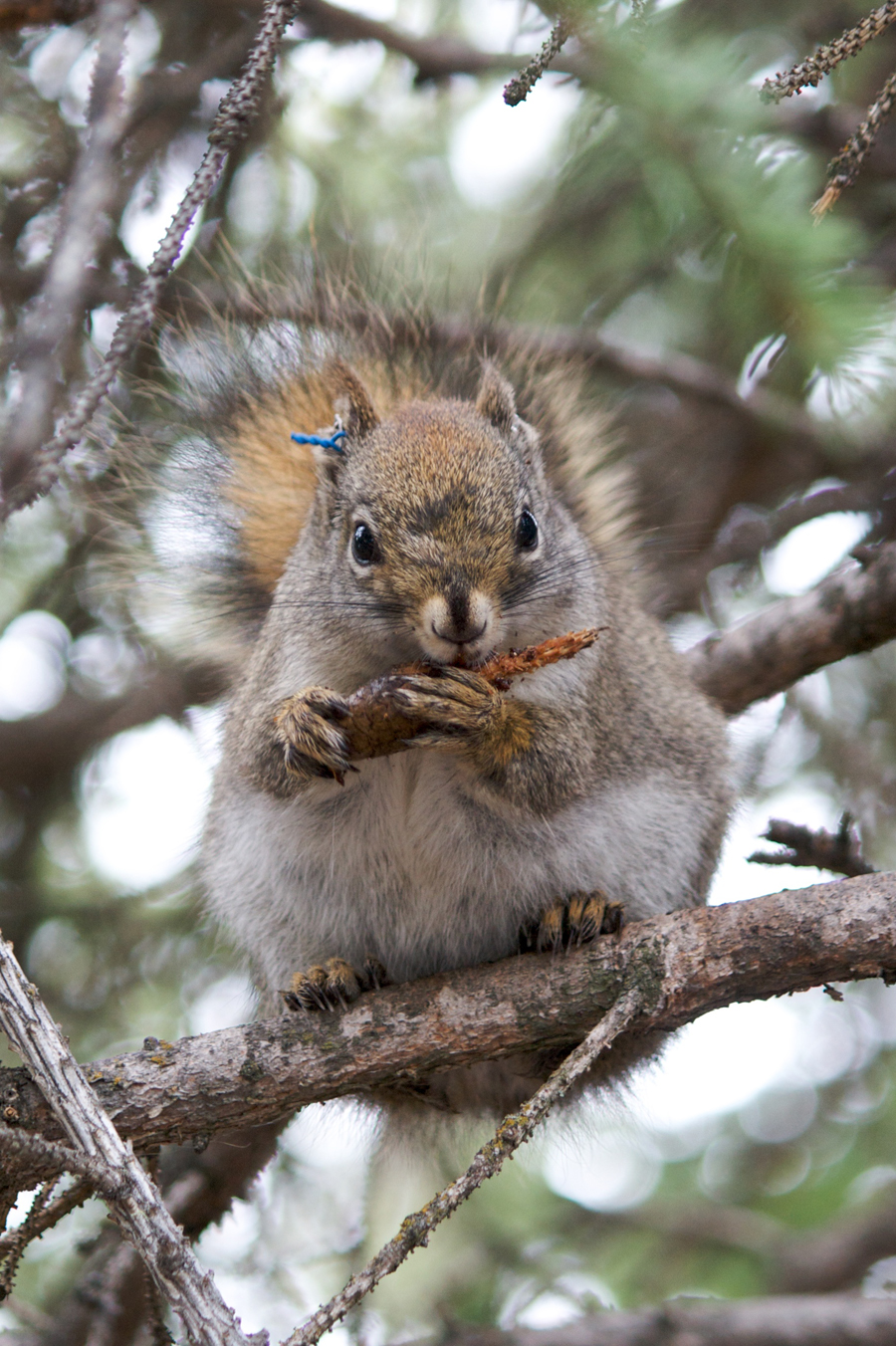
A red squirrel consumes white spruce seeds. (Credit: Ryan Taylor.)
Follow all of the Expert Voices issues and debates — and become part of the discussion — on Facebook, Twitter and Google+. See the Research in Action archive. The views expressed are those of the author and do not necessarily reflect the views of the publisher. This version of the article was originally published on Live Science.










